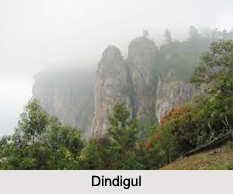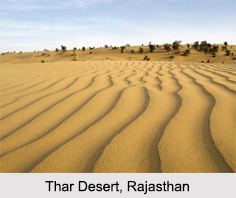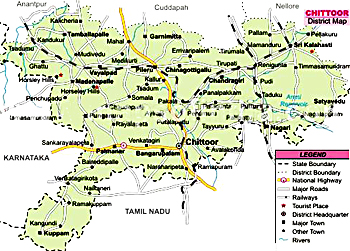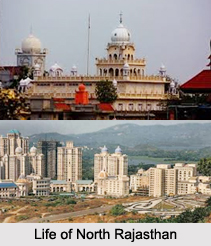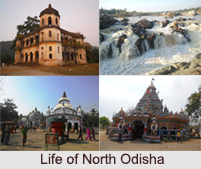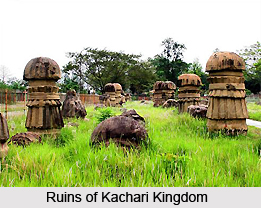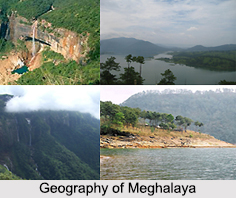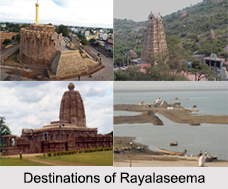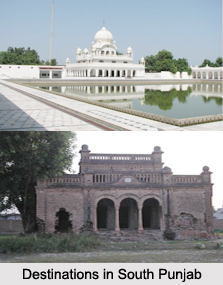Tourism in Sirmaur District will include exploring of the beauty of the nature apart from visiting nature parks, mountain peaks and temples. Sirmaur District offers several sightseeing options to the travellers. The tourist attractions of Sirmaur District draw the attention of the people from different parts of the country. This district of Himachal Pradesh is known for its scenic beauty that adds charm to the entire travelling experience. Sirmaur District is worth visiting. Some of the major tourist spots of Sirmaur District are mentioned below -
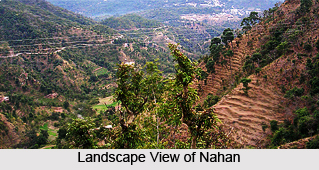 Nahan: Nahan is a pleasant tourist spot founded by Raja Karam Parkash in 1621 AD. It enjoys a pleasant climate almost throughout the year. It has several famous temples and tanks which add considerably to its attraction. It has an ancient palace just in the heart of the town which has its own importance and attracts the tourists from several places. The town`s special attractions include the Villa Round, the Military Round and the Hospital Round, which give the tourists a very pleasant view of the surrounding areas. There is Ranital Bagh, which is another most beautiful spots of the town. From the tourist point of view this town has its own importance having all modern amenities.
Nahan: Nahan is a pleasant tourist spot founded by Raja Karam Parkash in 1621 AD. It enjoys a pleasant climate almost throughout the year. It has several famous temples and tanks which add considerably to its attraction. It has an ancient palace just in the heart of the town which has its own importance and attracts the tourists from several places. The town`s special attractions include the Villa Round, the Military Round and the Hospital Round, which give the tourists a very pleasant view of the surrounding areas. There is Ranital Bagh, which is another most beautiful spots of the town. From the tourist point of view this town has its own importance having all modern amenities.
Churdhar Peak: The enchanting Churdhar Mountain is one of the main attractions of Sirmaur District located at a height of 11965 feet. It is the highest peak in southern Himachal Pradesh. Churdhar Peak commonly known as Churichandni (Bangle of Snow), is blessed with some of the most spectacular and beautiful landscapes in this region. The view from the summit embraces a vast panorama of lowland tracts towards the south and snow-capped ranges, including the Badrinath Peak and Kedarnath Peak in the Garhwal region, towards the north. It is believed that this is the very place where Lord Hanuman discovered the life-restoring Sanjeevini booti. Ruins of an ancient town have been discovered at the nearby Dundi Devi. A wealth of herbs and beautiful alpine flora cover these Himalayan slopes. Walking through the wildlife sanctuary, one spots the spectacular monal bird, along with koklass and kaleej pheasants. The canine-toothed musk deer and the endangered Himalayan black bear inhabit the higher forests. Below the summit is the deodar-roofed square temple of Srigul with a lingam, dedicated to Lord Shiva. It is a very ancient temple. Churdhar peak receives moderate to heavy snowfall. On a clear sunny day, one can get a view of the Badrinath and Kedarnath shrines, Gangetic plains, the Sutlej River and hills of Shimla and Chakrata. Atop the Churdhar summit lie the lingams of Lord Shiva and Goddess Kali.
Jaitak Fort: Jaitak hill is a historical place in the annals of Sirmaur. It was here that the most important battle was fought between the British forces and the Gurkhas. Jaitak is the name applied to a peak, or rather two peaks. Its elevation above the sea level is about 1479 metres. The fortress was constructed by Ranjor Singh Thapa, the Gurkha leader, when he attacked Nahan in around 1810. A small hamlet is the only remnant of old Jaitak. It commands a fine view of the Sain, Nahan and Dharthi hills.
Haripur Dhar: Haripur is the name applied to a mountain called Haripur Dhar. Perched on a peak of this hill like a silent sentinel, a fort was built on this range of mountain by the rulers of erstwhile Sirmaur state. It was primarily meant to guard the state frontiers from the neighbouring states as there were constant boundary disputes. The fort reminds the visitor of the rich history associated with the region. Its main attraction is the wild game in its vicinity.
Trilokpur: Trilokpur stands on an isolated hillock about 24 km south-west of Nahan at an elevation of about 430 metres. The place is famous for its temple of goddess Bala Sundari. The temple was built by Raja Dip Parkash in 1573. There is a large tank outside Trilokpur village built by Kanwar Surjan Singh in 1867. An important fair is held at Trilokpur twice a year, in the months of Chaitra and Ashwin.
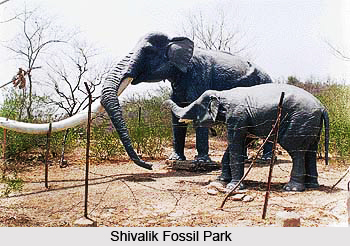 Shivalik Fossil Park: The Shivalik Fossil Park is situated amidst picturesque exposures of the Shivalik hills in the Markanda Valley. The Park has been developed by the Geological Survey of India, in collaboration with the Himachal Pradesh Government as a significant step towards preservation of Prehistoric animal sites, restoration of their natural environment and utilisation of the same for scientific, educational and recreational purposes. The Park inaugurated in the year 1974, displays life-size models of pre-historic animals which thrived in the area around 1 to 2.5 million years ago. Many spectacular fossil specimens have been exhibited in a small museum in the Park. Shivalik rocks are famous all over the world for the embedded remains of various vertebrate animals and plants that flourished during a time span of 25 million years and evolved along diverging lines giving rise to the present day forms of land animals and plants. Shivalik Fossil Park, is considered as one of the rare gifts of nature in Shivalik hills, wherein the remains of extinct prehistoric animals have been found preserved as fossils. It is a rich geological heritage.
Shivalik Fossil Park: The Shivalik Fossil Park is situated amidst picturesque exposures of the Shivalik hills in the Markanda Valley. The Park has been developed by the Geological Survey of India, in collaboration with the Himachal Pradesh Government as a significant step towards preservation of Prehistoric animal sites, restoration of their natural environment and utilisation of the same for scientific, educational and recreational purposes. The Park inaugurated in the year 1974, displays life-size models of pre-historic animals which thrived in the area around 1 to 2.5 million years ago. Many spectacular fossil specimens have been exhibited in a small museum in the Park. Shivalik rocks are famous all over the world for the embedded remains of various vertebrate animals and plants that flourished during a time span of 25 million years and evolved along diverging lines giving rise to the present day forms of land animals and plants. Shivalik Fossil Park, is considered as one of the rare gifts of nature in Shivalik hills, wherein the remains of extinct prehistoric animals have been found preserved as fossils. It is a rich geological heritage.
Thus, it can be said that Sirmaur District holds a very important position in the tourism map of Himachal Pradesh.







